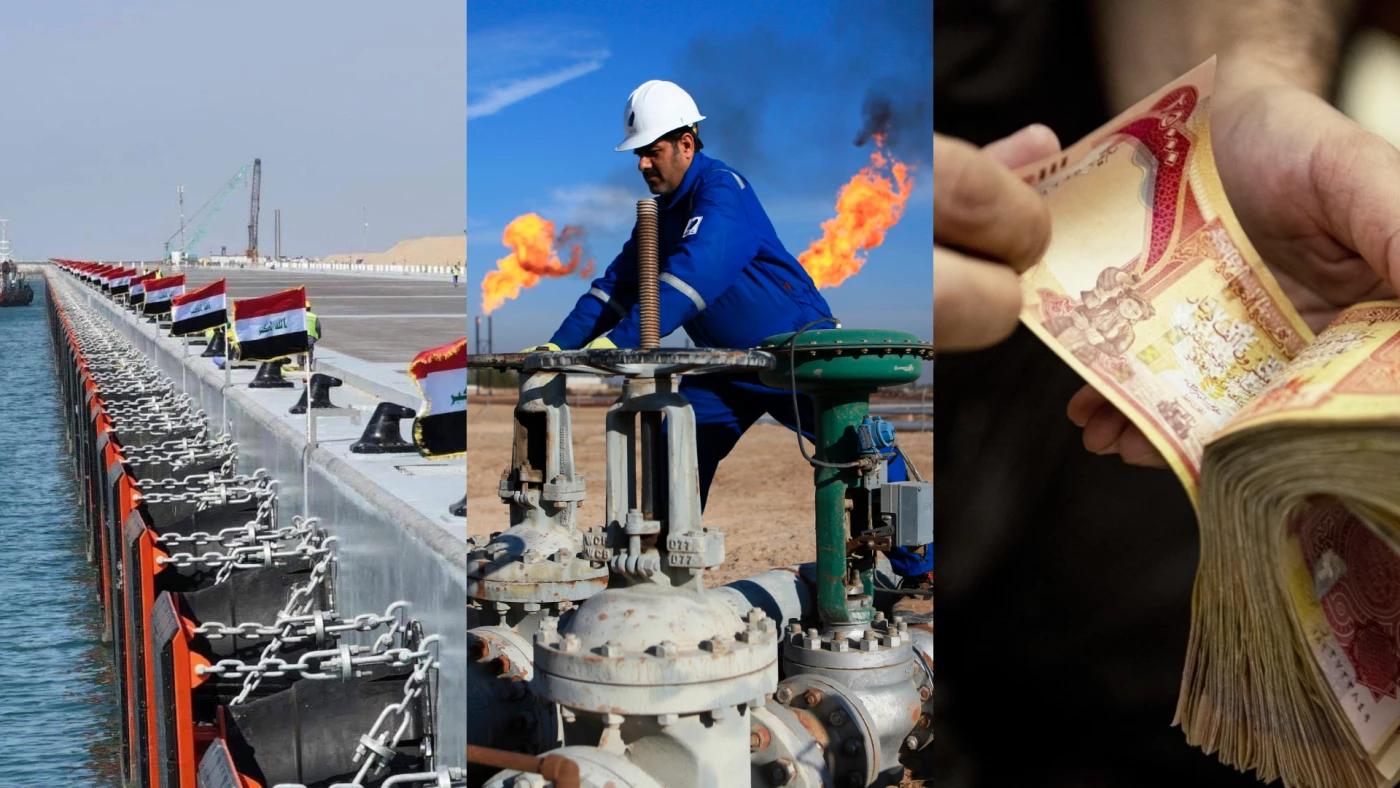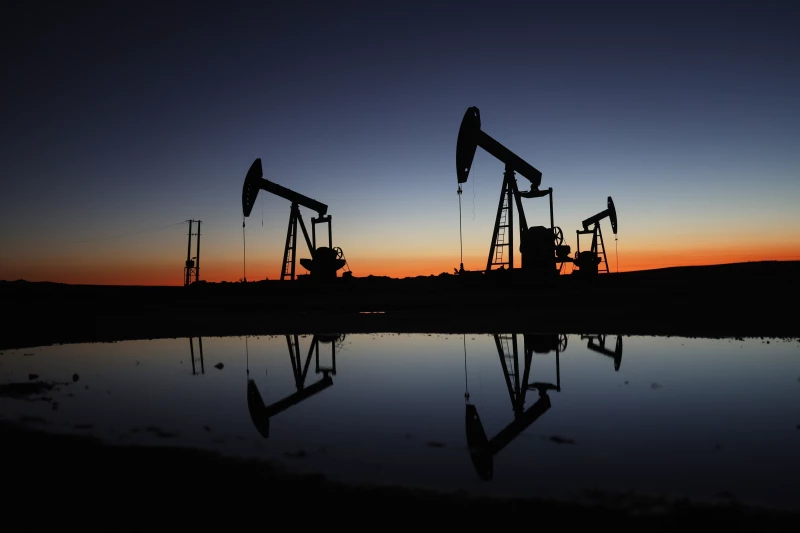ERBIL, Kurdistan Region of Iraq - In 2024, Iraq embarked on a decisive economic battle amidst rising global and local challenges. While heavily reliant on oil and vulnerable to global market fluctuations, there were "slight" signs of transformation in Iraq's economic landscape.
The year began with the government launching a series of bold measures targeting various economic sectors in pursuit of sustainable development. However, experts remain divided over these plans, recognizing success in some areas and failure in others.
The New Region conducted an in-depth study to identify the economic sectors targeted by Iraq's recent incentive measures during 2024.
Global economic growth for Iraq
The International Monetary Fund (IMF) reported earlier this year that Iraq's economy contracted by 2.2 percent in 2022. It predicted growth rates of 1.4 percent in 2024 and 5.3 percent in 2025.
The IMF also anticipated Iraq’s budget deficit to widen to 7.6 percent in 2024, up from 1.3 percent in 2023. It emphasized the need for gradual but substantial fiscal adjustments to stabilize debt over the medium term and rebuild financial reserves.
Economic expert Ahmed Saddam highlighted the government’s efforts to strengthen regional economic cooperation, including signing Memoranda of Understanding (MoU) with Turkey, Qatar, and the United Arab Emirates (UAE) to develop the "Development Road" project.
This initiative is expected to boost regional trade and promote economic integration with neighboring countries. However, Saddam noted these efforts remain insufficient, with limited impact on Iraq's private sector and foreign investment in non-oil sectors.
According to Saddam, the private sector contributed less than 10 percent of the gross domestic product (GDP) in 2023-2024, underscoring the urgent need to stimulate this sector for sustainable growth. Meanwhile, the oil and gas sector continues to dominate foreign investments, followed by housing and infrastructure, with services ranking third.
A report by CEOWORLD ranked Iraq as the fifth-largest Arab economy and 52nd globally in 2024. The country achieved a local growth rate of over $265 million, with projections of $278 million in 2025, $292 million in 2026, and $307 million in 2027.
Economic researcher Jalil Al-Lami pointed out that the Iraqi government has provided sovereign guarantees for investment projects, simplifying procedures for investors by streamlining company registration processes and reducing bureaucracy to attract more investments.
Iraq's oil sector in 2024
As Iraq’s most vital field, multiple agreements were signed in the oil sector in 2024. These included contracts with the Ukrainian company Ukrzerm Resources to develop the Akkas gas field in Anbar, Chinese firm JERA and Petro Iraq to develop the Mansouriya gas field, and an MoU with British Petroleum (BP) to rehabilitate and develop four northern oil fields in Kirkuk.
Additionally, the Ministry of Oil launched 29 oil and gas projects under the fifth and sixth supplementary rounds of licensing, aiming to produce 800-850 million cubic feet of gas and 750,000 barrels daily. Contracts for the exploration of 13 oil and gas blocks were also signed.
Economic expert Jalil al-Lami noted that the government is working to diversify income sources by supporting agriculture and industry. However, Saddam argued that the current focus on capital-intensive oil and gas projects has limited impact on job creation and development.
The Ministry of Oil signed agreements with Siemens and Schlumberger to invest in associated gas, while Iraqi oil exports to Jordan increased by 7 percent in the first 11 months of 2024 compared to 2023.
Iraq remains OPEC’s second-largest oil producer, with daily output exceeding 3 million barrels, accounting for over 90 percent of exports and the primary source of public funding.
Amid the global oil crisis, Iraq extended its voluntary production cut by 2.2 million barrels daily in line with OPEC+ directives.
Financial Challenges and Debt in Iraq
Iraq's budget rose to 211 trillion dinars (approximately $153 billion) in 2023. However, the IMF cautioned that Iraq’s internal imbalances have worsened due to fiscal expansion and declining oil prices, necessitating gradual fiscal correction.
Government sources estimate Iraq's external debt at less than 30 percent of GDP (around $20 billion), while domestic debt exceeds $45 billion, forming the bulk of total liabilities.
Reforms in taxation and banking increased non-oil revenues by 6 percent and tax revenues by 23 percent in 2024. Programs were launched to finance small and medium enterprises with low-interest loans, supporting entrepreneurs and startups, particularly in agriculture, industry, and technology.
However, the government struggled to stabilize the exchange rate and curb inflation, impacting living conditions. The Central Bank banned eight local banks from dollar transactions to combat fraud and money laundering, while engaging Oliver Wyman for a comprehensive review of Iraq’s banking sector.
Rami al-Salihi contributed to this article



 Facebook
Facebook
 LinkedIn
LinkedIn
 Telegram
Telegram
 X
X


